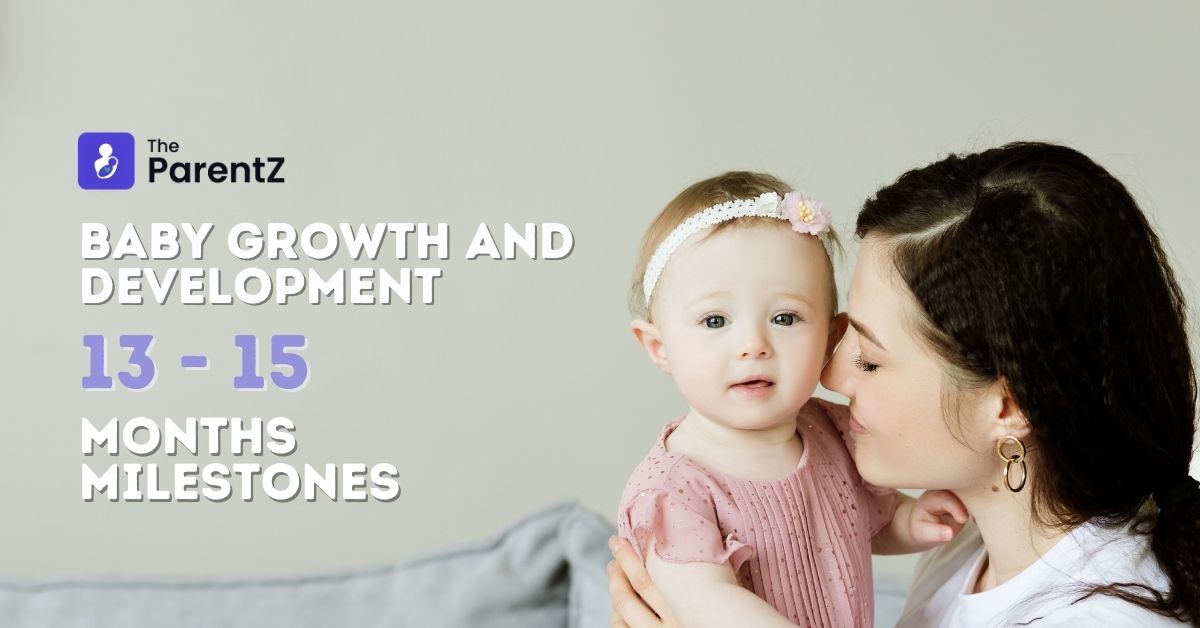Between 13 and 15 months, babies experience significant growth and development in their physical, cognitive, and social-emotional capacities.
Here are some of the crucial milestones you can anticipate during this stage of your baby’s development:
Physical Development
Walking skills
Walking By 15 months, utmost babies can walk unassisted or with only minimum support. They may still stumble or fall sometimes, but they’re getting more confident and coordinated with each passing day.
Fine Motor Skills
Your baby’s fine motor skills are perfecting rapidly, and they can now use their hands and fingers to manipulate small objects, feed themselves with a spoon, and even scribble with a crayon or marker.
Teeth Development
Most babies will have several teeth by 15 months, with some children having as numerous as 12 teeth or further.
Cognitive Development
Object Permanence
Your baby is starting to understand that objects continue to live even when they’re out of sight. This means they will be suitable to search for a toy that has been hidden or covered up.
Problem-Solving
Your baby’s problem-solving skills are developing as they learn how to figure out how things work. They may try to fit objects into containers, stack blocks, or open and close doors and drawers.
Language
Your baby’s language skills are also improving rapidly. They may be suitable to say several words and understand simple instructions such as “Come here” or” Give me the ball.” They may also start to babble in short phrases, such as “mama” or “dada.”
Social-Emotional Development
Attachment
Your baby is getting more attached to you and other familiar caregivers, and they may witness separation anxiety when you leave the room or are out of sight.
Play
Your baby is getting more social and interactive during playtime. They may enjoy imitating your conduct, playing with other children, and engaging in simple games like peek-a-boo.
Developing Feelings And Emotions
Your baby is also starting to witness a wider range of feelings, and they may show frustration, wrathfulness, or excitement more readily. They may also start to show empathy for others and comfort someone who’s worried or crying.
Some tips to support your baby’s development during this stage
Encourage walking
Give a plenitude of openings for your baby to practice walking, similar to holding onto a support or your hand.
Offer safe toys
Choose toys that are safe and applicable to your baby’s age and development position. Avoid small objects that could be choking hazards or toys with sharp edges or points.
Read and talk to your baby
Reading to your baby and talking to them regularly can help support their language development. Point out objects in books and around the house, and describe what you’re doing and seeing.
Give Social Opportunities
Arrange playdates with other children or take your baby to an original playgroup or baby class. This can help them develop their social skills and learn how to interact with others.
Be responsive to feelings
Respond instantly and sensitively to your baby’s feelings, whether they’re happy, sad, or worried. Comfort them when they’re crying and give plenitude of affection and consolation.
In short, every baby develops at their own pace, so do not worry if your baby isn’t hitting every corner exactly on schedule. Still, if you have worries about your baby’s development, do not hesitate to talk to your Paediatrician.






Be the first one to comment on this story.